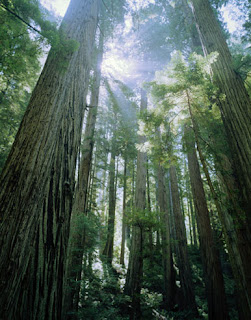We travelled by schooner to San Francisco - my last ocean voyage. At that time the city seemed to be overrun by Chinamen - crowds of them on the streets carrying loads on a pole across their shoulders just as shown in pictures of China. They were not allowed on the side walks with these loads so they had to take to the streets along with the pack mules and other animals.
Before continuing with grandfather's history here are some pictures of San Francisco circa 1870 to give you some idea of what the city looked like when with his parents and brothers and sisters they returned from Casper
Grandad's brother Alex took up pulling teeth in SF probably in a shop something like the one in the picture below or in a barber shop, a common combination back then. When I met him when he was 93 he had retired as a wealthy dentist in New York.
Before leaving California history I might just add that father never went down to the San Joaquin Valley again to look at the ranch for which he had paid $1000 (17,000 2010 dollars)as at that time it had been abandoned as being too dry for farming and only fit for grazing cattle. In later years this area was irrigated and the finest peach, plum and apricot orchards of the state were located there. One of the richest oil fields was also found on this section of ours which formed part of what is known as the Bakersfield Oil field. If we had but known this and stuck with it we might now be ranked with Rockefeller and Sinclair as millionaire oil barons.
Before continuing with grandfather's history here are some pictures of San Francisco circa 1870 to give you some idea of what the city looked like when with his parents and brothers and sisters they returned from Casper
Grandad's brother Alex took up pulling teeth in SF probably in a shop something like the one in the picture below or in a barber shop, a common combination back then. When I met him when he was 93 he had retired as a wealthy dentist in New York.
Before leaving California history I might just add that father never went down to the San Joaquin Valley again to look at the ranch for which he had paid $1000 (17,000 2010 dollars)as at that time it had been abandoned as being too dry for farming and only fit for grazing cattle. In later years this area was irrigated and the finest peach, plum and apricot orchards of the state were located there. One of the richest oil fields was also found on this section of ours which formed part of what is known as the Bakersfield Oil field. If we had but known this and stuck with it we might now be ranked with Rockefeller and Sinclair as millionaire oil barons.







